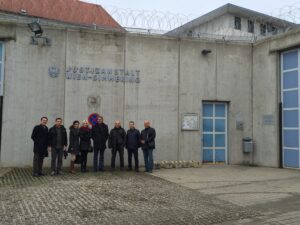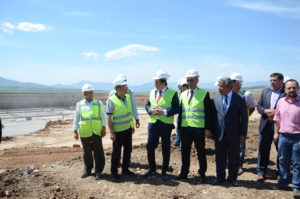
Technical Assistance for Implementation of Civil Society Dialogue and Civil Society Support Programmes (TR2015/DG/01/A5-01/001)
The overall aim of the project is to increase bilateral exchanges and cooperation between CSOs in Turkey and the EU at local, regional and national levels, to promote awareness raising initiatives on importance and benefits of membership of Turkey to the EU within Turkey and EU and on

Technical Assistance for Improvement of Enforcement Services in Prisons (DEPAR)
There was a general recognition that standards and conditions in Turkish prisons needed to be improved and brought into line with international norms, particularly those operating in the EU in the context of closer EU-Turkey integration.

Strengthening of an Integrated Strategic Approach to Increase the Efficiency and Productivity of IPA Funds during the Third Period (2021-2027)
This project’s main objective is to further increase and consolidate administrative capacity of the Turkish administration for more effective and efficient management and absorption of IPA funds, in addition to strengthen the capacity of NIPAC and other relevant institutions in the area of strategic planning and programming, proper

Technical Assistance and Supervision for Kahramanmaraş Water and Wastewater Project
The quality of the drinking water and its consumption is one of the most critical topics for the European Union and the whole world. Based on this context, the programme aimed to accelerate Turkey’s accession to the EU by enabling Turkey to achieve a high level of environmental

Technical Assistance for Establishment of MOBİTEK in Kayseri
The project’s overall objective is to increase the productivity and efficiency of the furniture manufacturing of small and medium enterprises (SMEs) in Kayseri and strengthen their product development and marketing capabilities.

Technical Assistance for Promoting Social Inclusion in Densely Roma Populated Areas
It’s an obvious fact that there is a need to increase social inclusion in heavily populated areas, particularly in Rome, mainly by facilitating their entrance into the formal labour market. Within this context, the project aimed to support Rome’s population by improving the quality of education delivery, vocational

